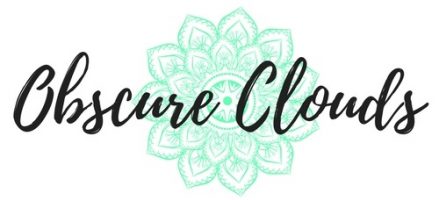Contemporary Paganism, or “Neo-Paganism,” is an umbrella term for numerous religions and spiritual beliefs and practices generally based around the reverence of nature. It contains many overlapping branches within it, including Druidry, Wicca, Shamanism, Heathenism, and Goddess Spirituality among others. Typically, Pagan practices make connections to an ancient past, drawing from a variety of traditions, such as Celtic, Norse, Greek, and Egyptian—though it is now widely recognized that this link to ancient spiritualities is by no means continuous or unbroken.
Most Pagans identify as polytheist, meaning they believe in and worship multiple gods and goddesses, often from a variety of pantheons. However, there is no one way of being Pagan, no one single belief system associated with it. It’s a religion that has no ultimate leaders, no “holy book,” no doctrine and no dogma—rather, it’s highly experience based, and spiritual beliefs and practices emerge as personal and fluid, inviting a wide range of interpretations.
The Pagan Federation defines Paganism as “a polytheistic or pantheistic nature worshiping religion,” but many others would argue that Pagans might also be monotheists, duotheists, animists, agnostics, atheists—or any combination of theisms and non-theisms.
Personally, I identify as a pantheist. So, what then does it mean to be a pantheist Pagan?
Pantheism
According to Dictionary.com, the definition of pantheism is:
- “The doctrine that God is the transcendent reality of which the material universe and human beings are only manifestations: it involves a denial of God’s personality and expresses a tendency to identify God and nature.”
- “Any religious belief or philosophical doctrine that identifies God with the Universe”
In other words, God is not separate or distinct from the material world, but actually is the material world itself. The pantheist’s God is immanent in all things, from the dust bunnies collecting under your fridge to the breathtakingly beautiful stars in the sky.
Personally, I don’t even really like using the term “God” when describing my spiritual views, as it’s such a loaded concept. “God” typically suggests a particular being, a specific thing separate from and above the rest of reality—a hierarchical perspective that, as a pantheist, I don’t agree with. So, to make things simpler, I tend to use terms like “sacred Universe,” or “divine oneness,” or “magical AF unity of the cosmos.”
Nothing in this universe exists in isolation—everything exists in relation with and as it is connected to everything else. Every microcosm is a part of the macrocosm, every individual atom a part of the greater whole. And it is this wholeness, this absolutely incredible unity that is sacred.
Every beat of your heart, every breath, every slight shift of your body—that is sacred. You are divine simply because you exist, and because you exist as a part of this greater whole.
Pantheism and Advaita Vedānta
Perhaps one of the most well-known world religions that takes a notably pantheistic approach to divinity is the ancient Advaita Vedānta school of Hindu philosophy. “Advaita” essentially translates to “non-dualism,” which means that though the world is composed of many different beings, all of them share an underlying unity, so that at their core, they are fundamentally the same. For living beings, this underlying unity is known as the ātman, which is the individual soul or live force. Ātman is the eternal essence or vital energy that exists within all of us, and within all living beings.
Along with the ātman, there also exists what’s known as the Brahman, which loosely translates to the “world soul” or “cosmic spirit,” which encompasses the divine essence of the Universe as a whole. Brahman is therefore kind of like the primordial soup from which everything emerges and in which everything exists.
While in other variations of Hinduism, there is a distinct difference between the ātman and the Brahman–a separation between the individual soul and what we could essentially call “God”–within the teachings of Advaita Vedānta, it is said that “ātman is Brahman.” Basically, there is no essential difference between individual life forms and God, no separation between any one soul and the ultimate divine reality.
From this religious perspective, the Self is God.
Most people, however, are not aware of this, and therefore go about their lives as though they were not divine at all. This ignorance in Hinduism is known as Maya, or illusion, and comes from maintaining a dualistic perspective of the world. Maya is essentially a pantomime; a grand performance put on by Brahman in which we are all actors participating in an elaborate drama. It is through spiritual awakening that we may find ourselves slipping out of these roles we play, if only momentarily, to realize that we are not our characters or our costumes, but we are, and have always been, Brahman. We are not just a part of the Universe, we are the Universe. We are God.
As the incredible mystic and Eastern philosopher Alan Watts puts it,
Brahman or Reality is beyond opposites, being that what does not require distinction for its existence. For Brahman is all things, this world we see around us, together with our consciousness and the thoughts in our minds and the feelings in our hearts.”
Alan Watts, Become What You Are
Whereas a seemingly radical statement like “I am God” sounds crazy from a monotheistic perspective, or even within polytheistic spirituality, it makes total sense to pantheists. If everything is God, then how could we not be God, too?
Pantheism in Paganism
As the Stanford Encyclopedia of Philosophy tells us, there is no one “true pantheism,” but rather multiple positions and diverse spiritual doctrines that give us numerous different ways of being pantheistic. While learning about the teachings of Advaita Vedānta was my first real introduction to pantheism (though I didn’t know the term for it then), and was the first time that religion actually made sense to me, my own beliefs do differ slightly from this tradition.
As a pantheist who is also a Pagan, the main difference between what I believe and what the Advaita Vedānta school posits is that the “material” realm is just as divine as the “spiritual” realm, and the two are inextricably tied together.
From a Hindu perspective, the soul is separate from the body, which is essentially just a vessel for the ātman, and therefore is not equated with Brahman. The same goes for non-living things, such as rocks or iPhones, or snowflakes—these things are considered to have no fundamental life force, and therefore are not part of the greater divine reality.
For Pagans, on the other hand, belief in a divine reality does not negate the importance of ordinary material reality. What distinguishes Paganism from many other religious traditions is what noted Pagan scholar Michael York calls its “corpospirituality”—the notion that divinity exists within everything, so everything is itself divine. And this means absolutely everything, not just living beings.
Moreover, while Paganism is generally associated with reverence for what we consider to be “nature,” corpospirituality goes beyond only seeing the divine in the “natural” world. Divinity exists in the way the wind blows through the trees, in the waves of the ocean and the soft trickling of the river, but also in the keyboard beneath my fingers, in the four walls surrounding me, with their chipping paint and peeling wallpaper, and in the mustard stain on my shirt.
The material world is therefore both sacred and profane, and no ultimate or clear divide exists between these two concepts. The mustard stain on my shirt is not just any stain, but a motherfucking divine stain.
As a pantheist, and as a Pagan, I don’t need to look beyond the material reality of this moment to find divinity. I don’t need to pray to a god, or contact the Otherworld in order to obtain spiritual fulfillment. The sacred for me is not discovered through transcendence, but is immanent in the here and now. I need only learn how to see it.
Gatekeeping in the Pagan Community
Though I am certainly of the opinion that being a pantheist in no way makes someone any less of a Pagan than a polytheist, it would seem that there are some people within the Pagan community who would disagree. Recently, I found myself banned from a popular Pagan discussion forum for (completely respectfully) putting forth my beliefs about divinity. I was told that I shouldn’t be calling myself a Pagan, and that “true” Paganism necessitates a belief in the literal existence of personal deities. Then I was kicked out of the forum.
This kind of gatekeeping within the Pagan community is nothing new. Many before me have written about this issue, what Jason Mankey calls “Holier Than Thou Paganism.” For these holy types, if a practice isn’t properly deity-centred, then it isn’t Paganism. But what I would argue, on the contrary, is that it’s actually this overly narrow view of Paganism that isn’t very “Pagan.”
No one should be able to dictate what is and is not “true” Paganism. Doing so is to fall into the trap of dogmatism—something that for many, is what supposedly separates Paganism from other religions in the first place.
Paganism, like pantheism, is defined by a wide range of beliefs and perspectives, and to deny this, to say that there is only one way to really be Pagan would be to negate the open and impartial nature of the religion. I know that for me at least, one of the aspects I initially loved so much about Paganism was its acceptance of a wide variety of beliefs and faiths.
Even atheists may identify as Pagan, and I personally don’t see anything wrong with that. For them, nature worship is the most important part their spirituality, and belief in Gods is not a necessary aspect of this. They can appreciate the incredible beauty of the cosmos, dedicating a ritual practice to it without needing to assign any notion of the sacred to it.
It shouldn’t matter whether you’re a polytheist, pantheist, monotheist, animist, agnostic, nontheist, or atheist—as long as you’re doing Pagan-like things and consider yourself to be such, then you are Pagan. No one should be able to tell you otherwise.
The Pagan Federation notes that a key aspect of modern Paganism is its “respect for plurality,” which means “the refusal to judge other ways of life as wrong simply because they are different from one’s own”–a perspective that I think should be taken into account for how Pagans treat other Pagans. I know I certainly would rather be a part of a community that’s accepting rather than judgmental, open rather than exclusive. Wouldn’t you?
And when you do come up against Pagans with different beliefs than yours, which is almost guaranteed to happen at some point, take it as an opportunity for potentially stimulating discussion, rather than simply a chance to tell other people why they’re wrong. Drop your defenses and listen to what they have to say—you just might learn something interesting!
References
Watts, Alan. 1995. Become What You Are. Penguin Random House.
York, Michael. 2009. Defining Paganism. In Paganism: Critical Concepts in Religious Studies (ed.) B. J. Davy, 221-227. New York: Routledge.
York, Michael. 2010. Idolatry, ecology, and the sacred as tangible. The Pomegranate 12, 74-93.
Also check out Alan Watts on the illusion of Maya here
And Jason Mankey with more on gatekeeping in Paganism here



The only problem I have is ” it involves a denial of God’s personality.” In that I beleive that the universe is both conscious and self aware without being seperate.
Thank you for this article. It has been some time since I tried to find my path in paganism. I learned recently about pantheism and with your article, I can affirm that I identify with pantheist paganism. Again, thank you, it answered the questions I had and cleared up my doubts.